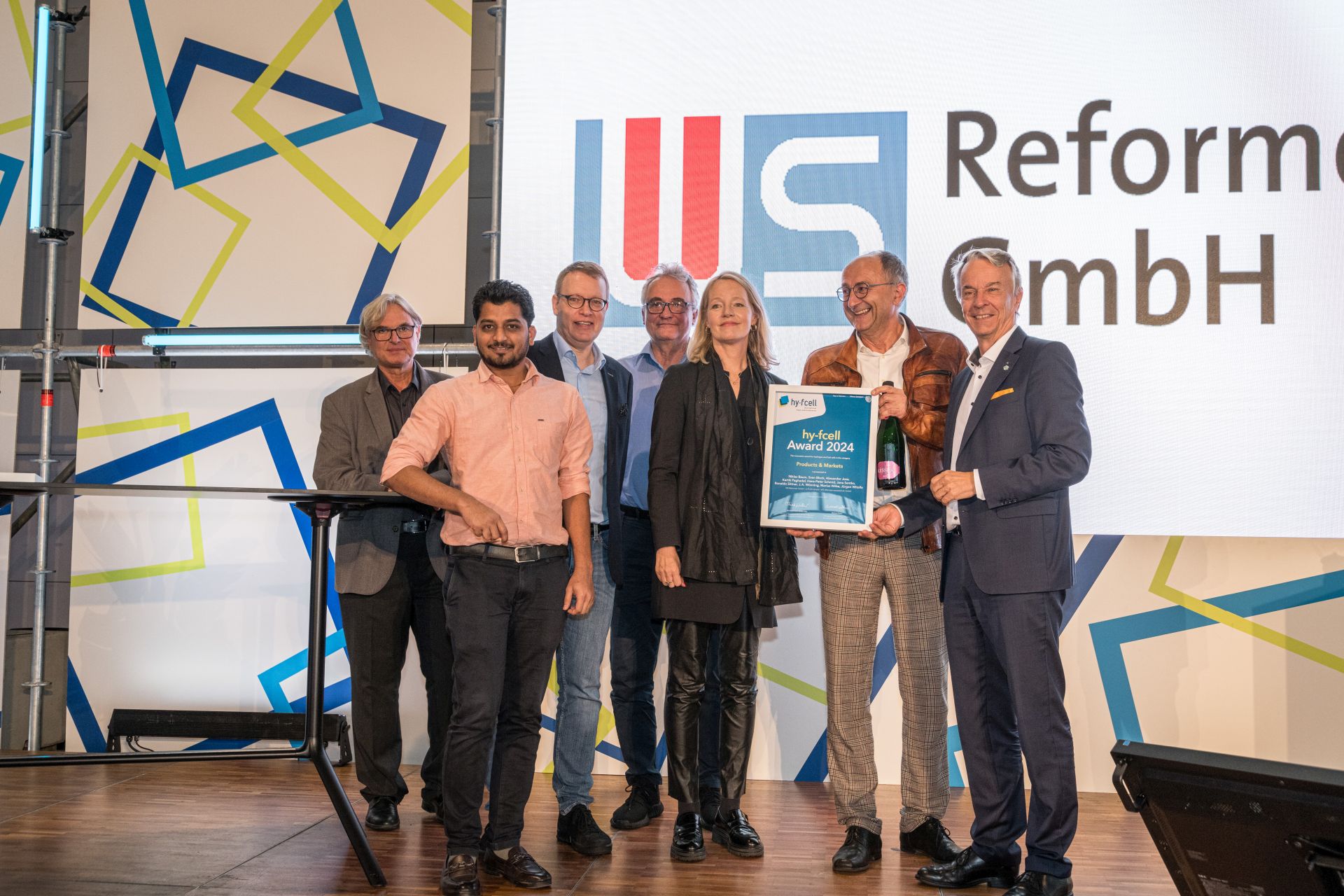Interview with WS Reformer - Winner of the hy-fcell Award 2024 in the Products & Markets category
In this interview, Hans-Peter Schmid, Managing Director of WS Reformer, talks about the technological challenges of hydrogen purification, the role of ammonia imports in an international context and the enormous scaling potential of their solution. He also provides an outlook on the political and economic decisions that need to be taken now in order to efficiently introduce hydrogen into industry and mobility.
Your project relies on ammonia as a carbon-free hydrogen carrier and you are developing a decentralised cracker solution. Why is this a decisive step for the hydrogen economy?
In principle, our technology opens up great opportunities where there are no hydrogen pipelines - or will not be any in the future. In other words: We enable efficient defossilisation using a liquid energy source that can be distributed using existing means of transport – such as truck or rail.
The scalability of hydrogen technology is crucial for the energy transition. Which markets in particular benefit from your decentralised cracker solution?
This depends heavily on the price of non-fossil ammonia – and, of course, all scaling starts small. The important thing is: In the fuel sector, the price parity with diesel lies at around 10 €/kg hydrogen. In industrial applications, especially for process heat, this threshold is 3 to 5 times lower. This clearly shows where we should start. Unfortunately, this approach has not yet been consistently pursued in terms of industrial and energy policy.
Your cracker is based on a modular design with innovative Pd membrane technology. What technological challenges did you have to overcome during development?
To be honest: We are still in the middle of it. We are working with our technology partners to develop and demonstrate the optimum solution. This requires considerable investment – in the case of the Pd membrane primarily in manufacturing expertise, and for us as a company in process development. In the end, everything depends on the right people.
The market for green hydrogen is growing rapidly. What role does your technology play in an international context, particularly with regard to hydrogen imports from overseas?
We are talking here about the import of hydrogen derivatives - such as ammonia - in large quantities. Reconversion at the harbour in central crackers requires huge investments in large-scale plants and the corresponding pipeline infrastructure – this does not happen overnight. It will be quite some time before that hydrogen will be available to medium-sized companies or petrol stations, for example in Baden-Württemberg or Bavaria. Our technology, now, offers a real alternative: You can start using hydrogen earlier and in a decentralised way.
What are the next steps for you? Can we expect a commercial realisation of your technology soon?
We are already working with a customer who is developing systems for decentralised power supply based on ammonia and will launch them in the market.
I see two possible scenarios for the next few years:
Scenario 1: Climate protection efforts stagnate, CO₂ prices remain low.
In this case, the hydrogen industry in Europe will hardly make any progress and China will continue to extend its technological lead.
Scenario 2: CO₂ prices rise considerably, the pressure to defossilise grows.
This clears the way for genuine innovation. In such a competitive environment, the best technology will prevail. And we are ready for it.
Interested in the hy-fcell Award 2025? Then apply now: https://www.messe-stuttgart.de/hy-fcell/en/programme/hy-fcell-award
zurück zur Übersicht
